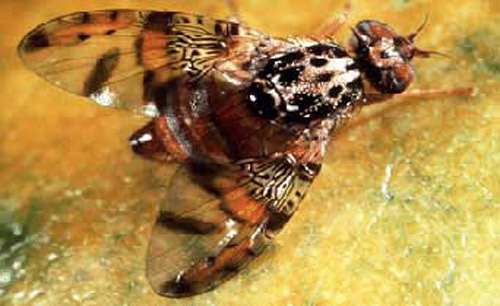The medfly is capable of damaging a variety of fruit crops. The female attacks the ripening fruit by piercing the soft skin and laying eggs inside the puncture. Once the eggs hatch into larvae, they eat the fruit, making it inedible for humans.

Mediterranean fruit fly
Photo: USDA
“Given that the Mediterranean fruit fly is one of the world’s most destructive agriculture pests, this is an extremely important find,” Kevin Donohue, CBP’s acting port director for the Area Port of Philadelphia, said in a release. “If Mediterranean fruit fly were to take hold in the United States, the estimated agricultural and economic loss would be devastating. Safeguarding America’s agriculture industries remains an enforcement priority for CBP, and it’s a mission that we take very seriously.”
The affected shipment contained more than 100,000 cases of clementines. Inspectors found one live larvae among many dead ones. The shipment was quarantined and the larvae were submitted to USDA entomologists for identification.
CBP said on any given day it can intercept more than 4,600 prohibited meat, plant materials or animal products, including more than 450 agriculture pests and diseases.